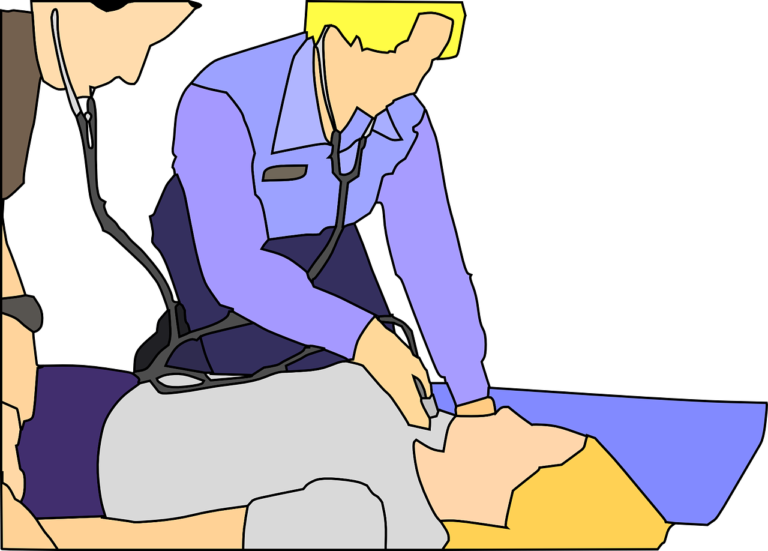How to Stop Negative Self Talk to Reduce Stress
Some studies have shown that personality traits such as optimism and pessimism can affect many areas of your health and well-being. Positive thinking, usually with optimism, is an important part of effective stress management. And effective stress management is linked to many health benefits. Don’t despair, even if you tend to be pessimistic. You can learn positive thinking skills.
If your self-talk is generally negative, you may perceive the events of your life as unnecessarily stressful and create unnecessary anxiety and stress on yourself. You may see more negatives than positives in what you see in life only if you are not ready to deal with the challenges you face and there is a less stressful “bright side” that affects you. not. Do not perceive habitual negative self-talk.
You may succumb to rumination. A ruminant is a pattern of negative thoughts that consumes idle time and can cause unnecessary stress from the past to the present without being resolved.Negative or positive self-talk patterns often begin in childhood.
What is negative self-talk?
Table of Contents
Negative self-talk is an internal dialogue with oneself that believes in oneself and one’s abilities and may limit one’s ability to realize one’s potential. It is an idea that reduces your ability to make positive changes in your life or your self-confidence in doing so. Therefore, negative self-talk can not only be stressful but can also break success.
Awareness of Negative Thinking
Not sure if self-talk is positive or negative? The common forms of negative self-talk are:
Filtering
They reinforce the negative aspects of the situation and exclude all positive aspects. For example, you had a great day at work. You completed your work earlier than planned and were commended for your quick and thorough work. Tonight, you focus on planning to do a little more chores and forget the compliments you receive.
Personalized
When something bad happens, you automatically blame yourself. For example, I’ve heard that a night out with a friend has been canceled, and I think the change in plan is because no one wants to be around you.
Catastrophe
You automatically assume the worst. The drive-through coffee shop makes a mistake in your order and you automatically think the rest of your day will be a disaster.
Polarization
They only see things as either good or bad. There is no compromise. You feel you have to be perfect or you are a complete failure
How to stop negative thinking or self-talk?
When you mentally complain about something negative to neutral or positive, you rethink your assumptions. Do you think something is a negative event, though not always?
For example, canceling a plan just before executing it may be a negative view, but what to do with an empty schedule may be what you do with it. The next time you’re stressed about something, or if you decide you’re not going to try it, stop and consider it to see if you can find a neutral or positive alternative.
Pay attention to the pattern
The first step to change is to become more aware of the problem. You probably don’t understand how often you say negative things in your head and how it affects your experience. The following strategies can help you become more aware of your inner dialogue and its content. Carry a diary and write down negative comments as you wish, write down a general summary of your thoughts at the end of the day, start writing about how you feel about a particular topic, and return for later analysis. Its content, journaling, is an effective tool for investigating internal processes.
Gentle Wording
Have you ever been to a hospital and noticed that a nurse was talking about “discomfort” rather than “pain”? This generally happens because the word “pain” is much stronger. Discussing “pain levels” can be more intense than discussing “discomfort.”
You can try this strategy in your daily life. Turning stronger negative words into more neutral words with self-talk can help neutralize your experience.
Focus on Positive Thinking
You can learn to turn negative thinking into positive thinking. The process is simple, but it takes time and practice-eventually creating new habits. Here’s how to think and act more optimistically:
Identify area where you can change
If you want to be more optimistic and think positively, start by identifying areas of your life that you usually think negatively, such as work, daily commuting, and relationships. You can start small by focusing on one area to be more positive.
Check yourself out
Stop regularly throughout the day and evaluate what you are thinking. If you find that your thoughts are mostly negative, try to find a way to point them at positive notes.
Accept humor
Smile and laugh, especially during difficult times. Look for humor in everyday events. If you can laugh at life, you will feel less stressed.
Follow a healthy lifestyle
Aim to exercise for about 30 minutes most days of the week. You can also divide it into 10 minute chunks throughout the day
Sports can have a positive effect on your mood and reduce stress
Follow a healthy diet to strengthen your mind and body. And learn stress management techniques.
Surround yourself with positive people
Make sure the people in your life are positive and supportive people you can rely on for useful advice and feedback. Negative people can increase your stress levels and question your ability to deal with stress in a healthy way.
Practice positive self-talk
First, follow a simple rule. Don’t tell yourself what you don’t tell anyone. If you have a negative idea in your mind, evaluate it reasonably and affirm your good points. Think of being grateful in life.
Conclusion
You can also rethink your overall view of self-talk. The truth is that talking to yourself is neither good nor bad. It is only harmful if we continue to return from habits of negative thinking (or toxic aggressiveness). With this approach, you don’t feel like fighting negative self-talk. Instead, we hear our critical inner voice, acknowledge it, and let it go.






